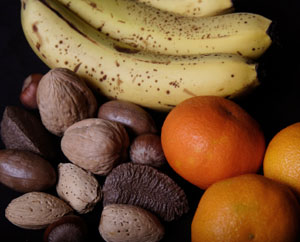health guides
For Better Health, Be a Choosy Snacker

When hunger strikes, chances are you’re never far from a snack. And chances are even better that it’s not going to be something that’s good for you. A study in the American Journal of Public Health found that the widespread availability of energy—dense (high calorie) snack foods—like chocolate bars, fizzy drink, and chips—might contribute to the obesity epidemic by providing people with high-profile placement of these foods. So, if you take your weight and health seriously, it’s worth the effort to plan ahead for better choices.
What’s the harm?
Retail supermarkets that aren’t designated as food establishments are only permitted to sell foods that are not “potentially hazardous,” meaning that they aren’t likely to cause food poisoning due to their prepackaged nature. The study’s authors point out that obesity-related illnesses are estimated to be responsible for 20 times more deaths each year than those caused by food-borne illnesses, calling into question the definition of “potentially hazardous.”
When you get the urge
Studies have shown that snacking between meals leads to higher total calorie intake. So if you need something to tide you over until the next meal, try these tips.
- First, make sure that you’re not just thirsty. Keep a reusable water bottle with you and take a drink, then wait 10 minutes before you reach for a snack.
- Buy fruit that’s in season, or dried if transporting it is an issue.
- Use small bags to carry reasonable portions of high-protein snacks, such as edamame (soya beans) or nuts. Keep a container handy in the fridge with cut up vegetables. Carrots, green beans, cauliflower, and broccoli make easy take-along low-calorie snacks.
- Look for a good bar to keep on hand, checking the label to make sure it’s low in sugar and saturated fats, high in protein and complex carbs, and emphasises unsaturated oils.
- When you really have a hankering for something fatty, reach for a handful of raw almonds. The fats found in nuts are super satisfying and they don’t lead to the kind of weight gain seen with fried foods.
(Am J Public Health 2009;doi:10.2105/AJPH.2009.178681)
Copyright © 2024 TraceGains, Inc. All rights reserved.


 We are proud to announce that
We are proud to announce that  As the market evolves, customers increasingly request a wider variety of omega-3 options for their lipid...
As the market evolves, customers increasingly request a wider variety of omega-3 options for their lipid...  Maintaining healthy glucose levels is crucial for preventing metabolic conditions like diabetes,...
Maintaining healthy glucose levels is crucial for preventing metabolic conditions like diabetes,...  Looking at formulating a new vitamin blend? Discover
Looking at formulating a new vitamin blend? Discover 







































